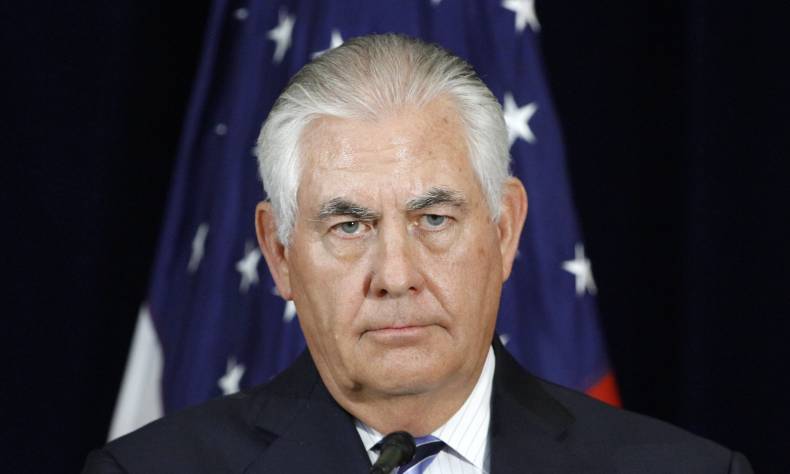
Peruvians’ View on Tillerson’s Saying that China Is a New Imperial Power
The U.S. Secretary of State Rex Tillerson described China as a new imperial power and warned Latin American countries against excessive reliance on economic ties with China. Is China a real “imperial power”? In answer to this question, The Latin Americans also have their right to answer.
According to Reuters on 2nd February, 2018, the U.S. Secretary of State Rex Tillerson described China as a new imperial power and warned Latin American countries against excessive reliance on economic ties with China, saying that the unfair trading practices used by many Chinese have also harmed those countries’ manufacturing sectors, generating unemployment and lowering wages for workers.
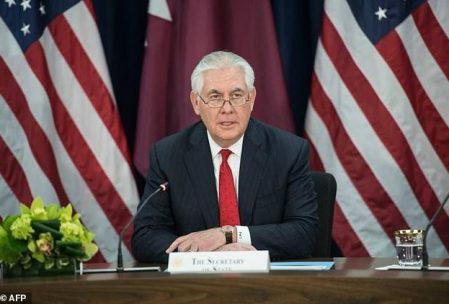
Is China a real “imperial power”?
In answer to this question, The Latin Americans also have their right to answer.
▲Peru’s trade minister Eduardo Ferreyros defended China as a good trade partner, after U.S. Secretary of State Rex Tillerson warned Latin American countries against excessive reliance on economic ties with the Asian powerhouse, as reported by New York Times on 6th February.
This statement is the Peruvian government’s first response since Tillerson’s warning, demonstrating that it does not share Washington’s concerns about China’s growing influence in the region.
The U.S. Has Two Faces for Latin America
Tillerson’s speech covered a wide range of areas, setting a sound and solid foundation for his first state visit to Latin America since he took office. In his speech, Tillerson clarified the Trump administration’s policy for Latin America and other regions in the western hemisphere. To improve the U.S. strategy on Latin America, a vision of a free and prosperous America continent was also proposed.
Comparing the U.S. and China, Tillerson boasted that the U.S. stood in vivid contrast. They did not seek short term deals with lop-sided returns; instead, they sought partners with shared values and visions. With the U.S., Latin Americans could have a multidimensional partner. Tillerson also said that in this year of the Americas, the U.S. would continue to be the Western Hemisphere’s steadiest, strongest, and most enduring partner.
Tillerson said that the U.S. would support Latin America’s growing democratic governance and free market, as well as efforts to crack down on criminal groups and corruption, and declared that 2018 was the year of the Americas
Tillerson gave the US a high-profile thumbs-up, while directing a barrage of criticism at China.
Interestingly, the degree of importance that the U.S. has put on Latin America over the last year contrasts with the great vision depicted by Tillerson.
Trump has not been to Latin America since he was elected, and Tillerson had repeatedly visited Europe and Asia last year but only recently began to think of coming to Latin America.
Los Angeles Times pointed out that as he marks his first year in office, Tillerson has defied foreign policy veterans who predicted he would be gone by now, a victim of his attempts to trim the budget and staff at the State Department, and of repeated differences with the White House over problems around the globe.
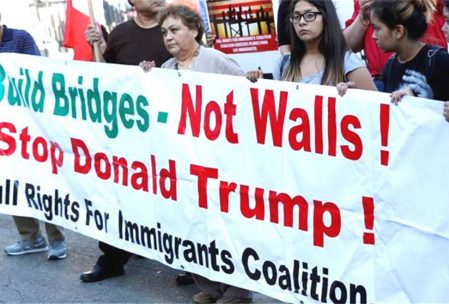
At present, the U.S. is the largest trading partner of many Latin American countries due to their heavy reliance on the U.S. in market, capital, technology and immigration. However, U.S. policy since last year has been damaging to many Latin American countries.
A senior Mexican official hinted that without agreement on NAFTA, Mexico would withdraw its support for the U.S. in the task of cracking down on drug trafficking and slowing down the flow of Central American immigrants into the U.S.
The Latin American countries are furious about the Trump administration’s attitude in dropping them down the rankings in its immigration policy. Not long ago, Trump’s reference to “shithole countries” included Haiti and El Salvador. Americans’ immediate idea of “illegal immigrants” is Latin Americans.
All these factors have combined to create offence in Latin American countries.
A recent Chilean poll showed that since Trump came to power, his support in Latin America has fallen as low as that of George W. Bush when the latter launched the Iraqi war.
China Treats Latin America with Sincerity
China respects Latin America. Since 2013, China’s President Xi Jinping has made three state visits to Latin America.
On 1st February, the Economist reported that Mr Trump has insulted Mexico, El Salvador and Haiti, discourages investment in the United States’ southern neighbour, and talks trade protectionism. China, in the soothing words of Mr Wang, offers Latin America a “strategy of mutual benefit and shared gain”.
Although China did not formally invite Latin American countries to the Belt and Road initiative, China stated that Latin America was a “natural extension to” and “indispensable participant in” this initiative.
In recent years, China has substantially increased its investment in Latin America and participated extensively in Latin American affairs. The annual value of trade between China and Latin America has soared to more than 200 billion U.S. dollars in 2014.
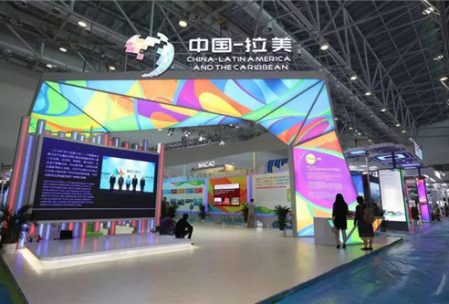
In 2017, China’s imports and exports to and from Latin America increased by 22%. Nowadays, China is the largest trading partner to Brazil, Chile, Peru and some other South American countries. Brazil set a new record trade surplus of 67 billion U.S. dollars in 2017, to which China contributed 33% – more than 22 billion U.S. dollars.
In recent years, China’s investment and loans have been the biggest change in Latin America. Not long ago, these investments and loans went mainly into oil and mining in Venezuela. But now they have expanded to more fields, many in Brazil and Argentina.
In 2017, China-funded enterprises made trade deals to the value of at least 21 billion U.S. dollars in Brazil, including the acquisition of power plants, power companies, and ports. China also funded the construction of the highway to Buenaventura, the Pacific port of Colombia, and the upgrading of the railway in northwestern Argentina.
Latin American countries scoff at the suggestion that China is a new imperialism power.
Oliver Stuenkel, a professor at the University of São Paulo, Brazil, said that China’s influence in Latin America was growing day by day. In Gallup’s latest poll, China’s rating in Latin America continues to rise, while the U.S. goes down. Moreover, China’s position on global governance and climate change is also appreciated and trusted by Latin American countries.
Latin America Cannot Succeed with Outdated Thinking
Though much of Tillerson’s speech has a superficial attraction, many listeners will recall the “Monroe Doctrine” of the 19th century.
Faced with the expansion of European colonialists, the U.S. proposed that “America belongs to the Americans,” and prohibited the European powers from interfering in Latin American issues. Its essence was the maintenance of the U.S. hegemony and unilateral intervention on the America continent.
On 2nd February, RIA Novosti reported the views of the Chairman of the State Duma International Affairs Committee, Konstantin Kosachyov. He sees Tillerson’s remarks as being consistent with the U.S. colonialism. Regrettably, the U.S. continues to consider itself the “global sheriff”, and cannot shed its addiction to hegemony and exclusivity.
Russian sociologist Anton Tsvetkov says that the U.S. has always regarded Latin America as its own backyard and taken the view that Latin American countries should develop relations only with the U.S. and with no other countries. The U.S. was uneasy when Brazil became a member of BRICS, and is unhappy at the prospect of China actively developing and Russia gradually restoring their economic relationships with Latin American countries.
It is ironic that on the one hand Tillerson criticizes China’s investment in Latin America; on the other hand, the U.S. has made few substantive commitments to Latin American countries. The idea that the U.S. is the natural partner of Latin America and shares the same values seems increasingly empty.
The Trump administration is committed to rebuilding the domestic manufacturing industry in the U.S. and strongly encouraging the U.S. companies to move their overseas capital back home.
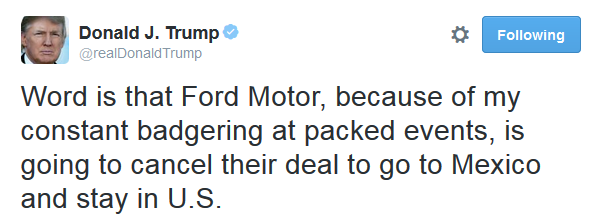
Last year, Trump tweeted his success in personally persuading Ford Motor Company to abandon its plan to invest in and build a factory in Mexico. Instead, he urged the company to invest back to the U.S. this is not a political background against which the U.S. can or will assist Latin American countries in developing their economy.
Latin American countries are in the process of consolidating their sovereignty as modern nations and have committed themselves to economic and social development. Many have their own economic and political ambitions. They prefer to develop all-round diplomacy, rather than be attached to the U.S. or any other power and find themselves subject to additional and unacceptable political conditions when receiving foreign aid.
The U.S. “Monroe Doctrine” is far outdated in Latin America.
Shi Liufeng, specially-hired researcher of Institute of B&R International Issues, International Business School, Yunnan University of Finance and Economics; researcher of APD Institute
The article reflects the author’s opinion, and not necessarily the view of China Matters.
 Facebook
Facebook
 Twitter
Twitter
 Linkedin
Linkedin
 Google +
Google +











